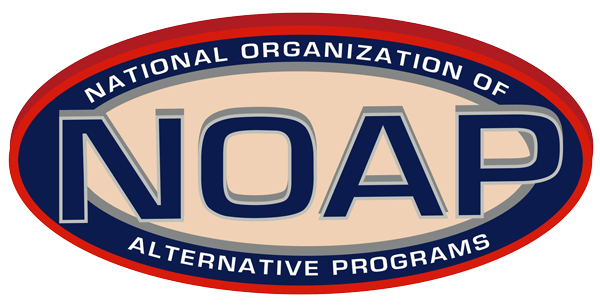Research Committee
Meets Monthly on the second Wednesday of each month at 2pm EST
Research Library
A collection of papers reviewed by the NOAP Research CommitteeNCSBN Research Papers:
NOAP Releases Minimum Drug Test Panel Consensus Statement (pdf)
NOAP Releases Program Core Measures Guideline (pdf)
NOAP endorses the FSPHP statement:
FSPHP Safety Considerations for Medication Treatment for Monitored Health Professionals (pdf)
Success Rates of Monitoring for Healthcare Professionals with a Substance Use Disorder: A Mets-Analysis.
Journal of Clinical Medicine
In the past decades, monitoring programs have been developed for healthcare professionals with substance use disorders. The paper aims to explore estimates of abstinence and work retention rates after participation in such monitoring programs.
Substance Use in Registered Nurses: "I Heard About a Nurse Who...". Journal of the American Psychiatric Nurse Association.
Part of a larger study surrounding nurses’ self-reports of SU (n = 1,478), the purpose was to explore open-ended responses of nurses (n = 373) who were invited to “Please add any additional comments related to substance or alcohol use that you have experienced or witnessed in registered nurses.”
Appropriate Use of Drug Testing in Clinical Addiction Medicine. American Society of Addiction Medicine.
The purpose of the Appropriate Use of Drug Testing in Clinical Addiction Medicine is to provide guidance about the effective use of drug testing in the identification, diagnosis, treatment, and promotion of recovery for patients with, or at risk for, addiction.
Addressing Substance Use Disorder in Anesthesia Professionals. American Association of Nurse Anesthesiology.
This position statement provides data and educational background on addressing substance use disorder (SUD) in anesthesia professionals in a timely, safe, and non-punitive manner. It is directed at facilities where anesthesia professionals deliver anesthesia services, as well as state and local boards that license Certified Registered Nurse Anesthetists (CRNAs) and other anesthesia professionals.
The PeTH Blood Test in the Security Environment: Why is it Important and Interpretive Guidelines. Journal of Forensic Sciences.
Testing for phosphatidylethanol (PEth) is a relatively new tool for detecting and grossly quantifying a person’s use of alcohol in a variety of security, medical, and legal environments. The basic chemistry of PEth is explained with a particular focus on factors that make it highly suitable as a biomarker for alcohol use in such situations.
A Call to Action: Improving Clinician Wellbeing and Patient Care and Safety. National Academy of Medicine
A growing body of research indicates that healthcare clinicians are facing serious problems related to their overall health and wellbeing. This includes experiencing relatively high rates of burnout, depression, addiction and suicide.
Accessibility and Financial Barriers in the Utilization of Alternative to Discipline Programs in the US. Online Journal of Issues in Nursing.
States with ATD programs were evaluated for evidence-based components and barriers to accessing program information. Publicly available ATD program information ranged from requirements for contact information to obtain details to websites that outline the entire program, including associated costs.
Comprehensive Case Management for Substance Abuse Treatment. SAMHSA
This document details the factors that programs should consider as they decide to implement case management or modify their current case management activities. This summary is excerpted from the main text, in which references to the research appear.
Outcomes of Substance Use Disorder Monitoring Programs for Nurses: Journal of Nursing Regulation
To assess the SUD program completion rates and determine the program characteristics associated with program
completion.
Adaptions to Substance Use Disorder Monitoring by Physician Health Programs in Response to COVID-19. Journal of Substance Abuse Treatment
The juxtaposition of physicians as both human and heroic has never been so starkly apparent as during the COVID-19 pandemic. This crisis introduced a critical challenge for PHPs in determining how best to support those working in health care (often amid conditions of extreme emotional stress, personal and professional loss, and physical exhaustion) to protect against rekindling their SUD or co-occurring conditions
The American Psychiatric Association's Resource Document on Guidelines for Psychiatric Fitness-for-Duty Evaluations of Physicians. American Psychiatric Association.
The psychiatric evaluation of a physician’s fitness for duty is an undertaking that is both important to patients’ well-being and to the physician-subject of the evaluation. It is necessary that psychiatrists who agree to perform such evaluations proceed in a careful and thorough manner. This document was developed to provide general guidance to the psychiatric evaluators in these situations
"A Two Glass of Wine Shift": Dominant discourses and Social Organization of Nurses' Substance Use. Global Qualitative Nursing Research.
Institutional ethnography utilizing the expert knowledge of nurses who have experienced substance-use problems to discover: (a) What are the discourses embedded in the talk among nurses in their everyday work worlds that socially organize their substance-use practices and (b) how do those discourses manage these activities?
